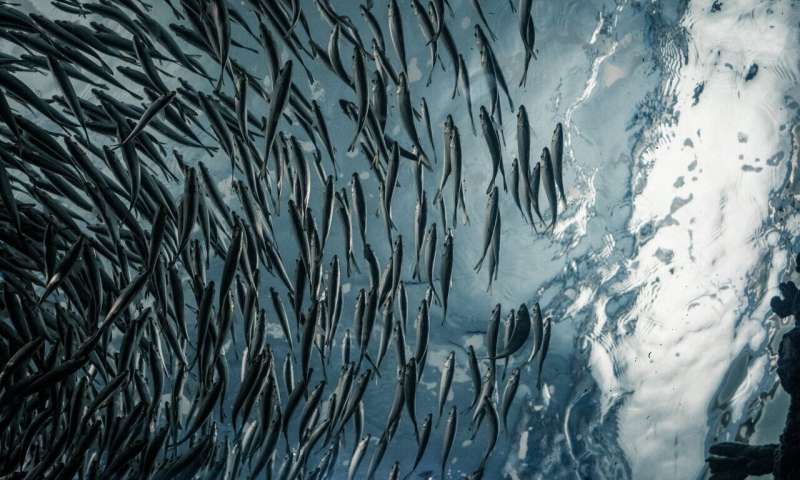 A new study published in Elementa by researchers at the University of California, Santa Cruz and NOAA examines traditional aspects of seafood sustainability alongside greenhouse gas emissions to better understand the 'carbon footprint' of U.S. tuna fisheries.
A new study published in Elementa by researchers at the University of California, Santa Cruz and NOAA examines traditional aspects of seafood sustainability alongside greenhouse gas emissions to better understand the 'carbon footprint' of U.S. tuna fisheries.
Fisheries in the United States are among the best managed in the world, thanks to ongoing efforts to fish selectively, end overfishing, and rebuild fish stocks. But climate change could bring dramatic changes in the marine environment that threaten seafood productivity and sustainability. That's one reason why researchers set out to broaden the conversation about sustainability in seafood by comparing the carbon emissions of different tuna fishing practices.
The paper also puts those emissions in context relative to other sources of protein, like tofu, chicken, pork, or beef. In particular, the study examined how the carbon footprint of tuna was affected by how far from shore fishing fleets operated, or what type of fishing gear they used.


 Advertising
Advertising